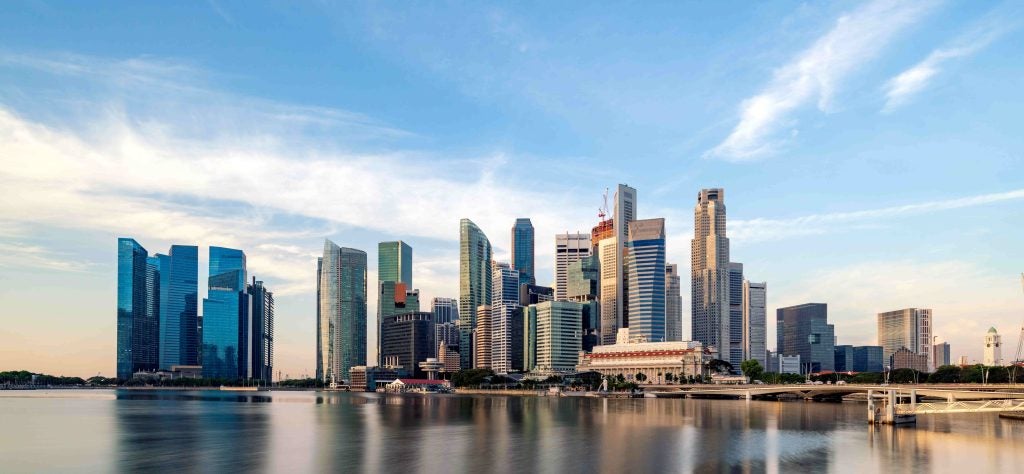Under extremely challenging and unpredictable economic conditions, it appears that HNWIs and the private banking industry in Brazil have been kept relatively secure by a high interest rate environment. However, wealth creation is almost non existent in the country and could pose challenges for the industry in the future if not rectified. John Schaffer explores….
On the face of it, it would seem that the adverse macroeconomic conditions in Brazil would be having a detrimental effect on private banks and high net worth individuals (HNWIs), particularly over the last couple of years.
Economic growth has been disappointing in the region, growing by an average of 2.2% per year between 2011 and 2014. Forecasts suggest that the economy will shrink by 3% at the end of 2015 and many analysts predict a further 1% contraction in the subsequent year. Brazil has fared poorly in comparison to its emerging market competitors such as China and India, and has struggled with the impact of falling commodity prices – particularly significant in a country where its key industries are focussed on oil and natural resources.
Brazil also reflects a challenging geopolitical climate. The poor economic conditions have prompted unrest, with chants for President Dilma Rousseff’s resignation being hailed through the streets of Brazil – not long into her second term in office, in light of the controversy surrounding the Petrobras scandal.
The volatility of the Brazilian currency, the Real, has also been cause for concern. In USD terms, the currency lost 57.9% of its value in one year (from USD1.00 – BRL2.45 to USD1.00 = 3.87).
How well do you really know your competitors?
Access the most comprehensive Company Profiles on the market, powered by GlobalData. Save hours of research. Gain competitive edge.

Thank you!
Your download email will arrive shortly
Not ready to buy yet? Download a free sample
We are confident about the unique quality of our Company Profiles. However, we want you to make the most beneficial decision for your business, so we offer a free sample that you can download by submitting the below form
By GlobalDataBrazil is the largest private banking market in the Latin America region and accounts for more than 50% of HNWI wealth. According to Capgemini/RBC’s World Wealth Report 2015, Brazil’s HNWI wealth decreased by 1.4% to $3.97tr in 2014. But the dip can be attributed to currency volatility rather than asset allocation. In fact, if total assets are looked at in domestic currency, the private banking industry has still managed to grow by double digits.
According to ANBIMA, the Brazilian association of financial and capital markets, the total assets of the Brazilian private banking industry grew by 11% in 2014 and now manages approximately BRL700m. The industry has also been historically strong, with year-on-year AuM increases averaging 20% up to 2013, where performance started to drop off.
Brazil’s wealth is extremely concentrated. The country’s total population is approximately 204m. Among the total taxpayers, the government estimates that around 0.21% of the total population concentrates something close to 59.9% of the total declared goods and belongings in the country.
According to Fitch Ratings, only 9,000 people are owners of investments higher than BRL10m in Brazil, therefore presenting a competitive arena to gain the wealthy clients’ share of wallet. The challenge is further compounded by a lack of new wealth being created in the region.
Opinions are mixed as to how significantly the macroeconomic conditions have been weighing on the private banking industry and the wealth of its clients.
Andre Xavier, senior partner and managing director at Boston Consulting Group (BCG), is rather optimistic and suggests that the industry is healthy, sizeable, and growing:
"In terms of how the crisis has impacted private banking, it really hasn’t. The industry is changing quite significantly, but it’s more a matter of who is winning or losing share and clients.
"It should grow again by double digits this year. Although there’s been a reduction in events that are bringing new wealth to the market, wealth is still being created, and with the change in exchange rate, a lot of people brought wealth into Brazil."
It appears that high interest rates within Brazil are keeping the private banking industry buoyant. With interest rates standing at 14.25, the industry has little to do to increase its total AuM.
Flavio Souza, managing director at Itau Unibanco – one of Brazil’s large private banking players with a 26% share of the market – suggests that Itau’s wealthy client base has not been adversely affected by the negative macroeconomic environment:
"The economic situation does not necessarily mean a difficult or bad situation for investors. Investors today are in a position to take advantage of high interest rates, they also have the opportunity to invest in inflation linked investments, which at this stage are giving very high rates."
However, Vitor Ohtsuki, wealth management executive superintendent at Santander Brazil, paints a different picture. He says that wealth creation is a significant issue in Brazil and that there is a real challenge to attract new clients when new millionaires are not being created. He tells PBI:
"We don’t have M&A deals, we don’t have IPOs, the dividends that companies are paying are low because of the economic crisis – so we are not forming new millionaires. The IPOs that we’ve had have been decreasing a lot since 2008, where we had more than 60 IPOs. It was another drive for revenue and AuM growth and we’re not seeing this anymore.
"The challenge for us and our competitors is how you’re going to get new clients or how you’re going to get assets from existing clients. Since new assets are not being generated, you need to take clients from the competition."
Clearly this strategy of poaching clients from competitors is not a sustainable model. However, according to Ohtsuki, Santander believes the Brazilian economy will grow back in three or four years.
"During this three-to-four-year period it’s going to be tough and difficult to increase the assets. But after this, we believe that we’re going to have a growing economy that’s going to generate more customers."
Marc Braendlin, head of Brazil & strategic initiatives LatAm at Julius Baer, says that although new wealth creation has been affected, the majority of HNWIs have not lost money.
"We don’t see a lot of wealthy Brazilians who are losing significant money. There are some cases which are more affected where you see that actually, wealth is being destroyed. But overall, it’s not a trend that the overall market is coming down," Braendlin tells PBI.
Clearly there have been some high profile losses amongst wealthy Brazilians. Eike Batista, previously Brazil’s richest man, faced vast cuts to his wealth, reducing from $35bn in 2012 to being $1.2bn in debt after the fall of his company, IGX, in 2013. However, it seems that generally, the wealthy have been fairly resilient through this challenging period.


Locally-focused investment appetite
HNWIs in Brazil tend to heavily focus their allocations towards domestic fixed income instruments. The recent interest rate hike has incentivised little else where the equity market is almost non-existent in Brazil.
The challenge, however, in predominately allocating assets domestically, is exposure to f/x volatility, which has certainly been significant during 2015. Evidently, one solution would be for the Brazilian wealthy to diversify and invest offshore. But access to international equities has become more difficult after the devaluation of the currency.
Rogerio Pessoa, co-head of wealth management at BTG Pactual, suggests that there has been little investment outside of Brazil.
"Over the past two years, a lot of Brazilians were stuck in the middle of deciding whether they should send their money abroad, to take advantage of the currency devaluation. But the devaluation itself occurred very quickly after the election, so I don’t think many Brazilians were fast enough to shift their assets to more dollar denominated or strong currency denominated assets.
"In 2009/10, we had seen a lot of diversification from more fixed income related instruments, such as in our hedge funds with lower liquidity and private equity instruments – but that reversed over two years with the increase in interest rates and the uncertainties in the economy."
Ohtsuki says that there was a significant move to offshore allocations in 2014 amongst Santander clients, prompted by doubts over the country’s political scenario leading up to the presidential elections. He adds that the exchange rate was more favourable towards sending money offshore. Now in 2015, Santander clients’ appetite for offshore investments is subdued.
"We see clients being more conservative in terms of the future, being more focussed on fixed income assets. Basically, they are not looking for equity and they are risk averse," Ohtsuki says.
Claudio Gallina, senior director and country head for Brazil at Fitch Ratings, suggests that currently, there is little capital outflow from Brazil.
"Less than 2% of all funds managed in Brazil are invested in offshore assets. This is a good increase compared to the 0.21% five years ago, and is strongly correlated to the expectation of the F/X volatility. From now on, however, depending on the dynamics of the market, the flow of investments from private banking clients abroad may reduce or remain flat."
Pessoa tells PBI that BTG is encouraging its clients to diversify into international investments. He also suggests that the bank’s clients have between 20%-25% of their portfolios invested abroad.
"We’ve actually been investing a lot in educating our clients on how to invest abroad and signifying its importance – not just to hedge against whatever crisis may be happening in Brazil, but more as a means of diversification of assets.
"I think the offshore market is much richer than just investing in the local Brazilian market. We have been strong in terms of our dollar policy. The dollar has appreciated against most currencies in the world, especially against emerging market currencies."
However, Pessoa adds that it can be difficult to convince clients to diversify when the lure of high domestic interest rates is so strong.

A concern for entrepreneurs
With a difficult economic environment for wealth creation, some Brazilian entrepreneurs are being squeezed.
"High inflation, high interest rates and low economic growth are a triple whammy for entrepreneurs. We see a lot of negativity in the entrepreneurial community, I think clients are actually saving themselves for the worst, having been investing a lot to grow. This sometimes means that they actually have to take their money out of investments and put it back into their companies," Pessoa tells PBI.
However, Xavier, BCG, suggests that high interest rates have been a feature of Brazil for a long time. "Particularly if you have a smaller business, you’re not very dependant on bank loans. You’re much more dependant on either your own capital or on venture capital, so a higher interest rate wouldn’t necessarily be a squeeze on up and coming companies."
Weak M&A opportunities
Although M&A is a predominant feature currently in the global private banking industry, the opportunities for new deals appear to be few and far between in Brazil’s private banking market.
Perhaps the most significant deal in recent times was the sale of HSBC’s Brazil division to local player, Bradesco, in July for BRL17.6bn. However, some analysts felt that the purchase price for HSBC was exceptionally high and that Bradesco had entered into the deal to stave off competition.
The HSBC deal was certainly on the radar for competitors in Brazil. Santander was also in the bidding war for the division, and Ohtsuki says that the bank was surprised that it lost the bid.
"I believe that HSBC was the last big fish in the sea. We made an offer, but we were surprised that we were not the winner.
"In terms of future acquisitions, I believe that we are not going to do this as the private banking business is pretty much consolidated. Some of the international banks left Brazil in the last few years, but the ones that are still here, I believe, are going to stay for a long time. There’s not a lot of room for new M&A."
Room for foreign players
One challenge that international players face while entering Brazil’s private banking market is the strong home bias of HNWI clients. Swiss bank Julius Baer took one of the few acquisition opportunities in Brazil and entered the market by purchasing a stake in local wealth manager GPS in March 2014. GPS has an AuM figure of BRL22bn.
Initially, Julius Baer purchased 30% of the company, which was later upped to 80%. However, the branding of GPS was not changed and the wealth management model kept the same, so as to keep the appeal of a domestic company in a market where Julius Baer was not a known brand. Additionally, Julius Baer decided not to implement its full suite of private banking services in line with the acquisition.
"We deliberately kept the GPS name because we wanted people to understand that it is a different business model. It is branded keeping the former name GPS and stating that it is "part of the Julius Baer group". There was no technical integration because we did not have a domestic business of Julius Baer, so there was no merger," Braendlin tells PBI.
Although Braendlin acknowledges that growth has been slow in Brazil over the past two years, he says the bank’s aims are long-term in the region.
"For all international players, if you want to gain a foothold in Brazil, there’s no way around having a strong domestic presence. Brazil is one of the largest wealth management markets in the world. If you look at it from a long term perspective, it’s a very attractive market. We’ve gained an entry door and now we want to further establish ourselves."
International banks have a challenge to compete with the offerings of domestic players in Brazil. Some of the large international banks such as Goldman Sachs, Merrill Lynch and Royal Bank of Canada (RBC) have exited the Brazilian marketplace in recent years.
However, international players such as JP Morgan, Credit Suisse and Citi have established a solid franchise within the region. JP Morgan and Citi developed their foothold in the early 2000s by growing organically over the last decade. Credit Suisse gained a presence in the market through its acquisition of Hedging Griffo.
"To entice wealthy clients from the domestic players is somewhat difficult, as the Brazilian banks such as Itau, Bradesco, and Banco de Brasil are very good at cross-selling products (investments, credit, insurance) not only to individuals, but also to the companies they own," Gallina, Fitch Ratings, tells PBI.
Xavier, BCG, adds that despite international players investing significantly in Brazil, they do not give their clients access to LCI/LCA (specific types of time deposits issued by domestic banks that have tax benefits), which puts the international players at a disadvantage: "LCI/LCAs are very safe and actually return quite well, net of tax, in a high interest rate environment. If you can’t implement those then you’re a bit squeezed. The market has turned against international players in the last two years."
However, there is reason for foreign players to be hopeful, Xavier says. "I do think that as the market grows again, and people start to diversify away from LCI/LCAs, they [wealthy clients] will look for these sophisticated players, especially at the upper end."
The future for Brazil’s HNWIs on the whole looks hopeful as well. Gallina, Fitch Ratings, suggests that there will be growth in HNWI wealth going forward via two different ways of increasing assets: either by inclusion or accumulation.
For the occurrence of inclusion, says Gallina, a more stable economic environment is needed, with GDP growth, inflation and F/X under control, among other things, for which the recovery of investors’ positive sentiments towards the country is crucial, which could bring more investments to the country. "This would enable better income distribution, allowing more individuals to access private banking services," he adds.
However, for the next couple of years, the occurrence of wealth accumulation is most probable, with high interest rates, inflation undermining salaries, volatility in the F/X, and possibilities of arbitrage in different products (such as derivatives). "Since only sophisticated investors (can understand and) have access to these type of services, the expectation is that the wealth of HNWIs will increase through accumulation," informs Gallina.








